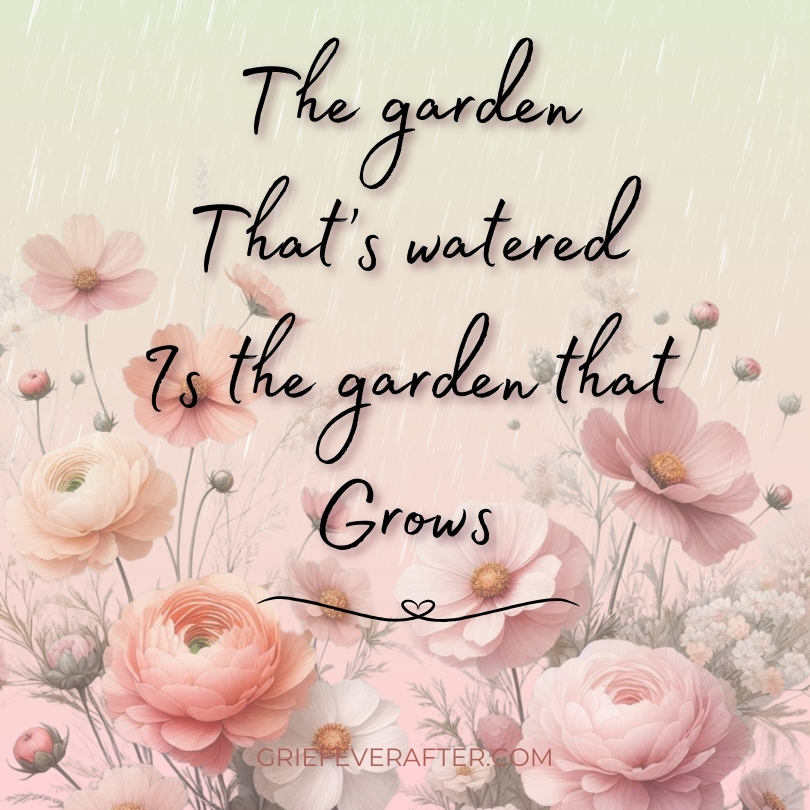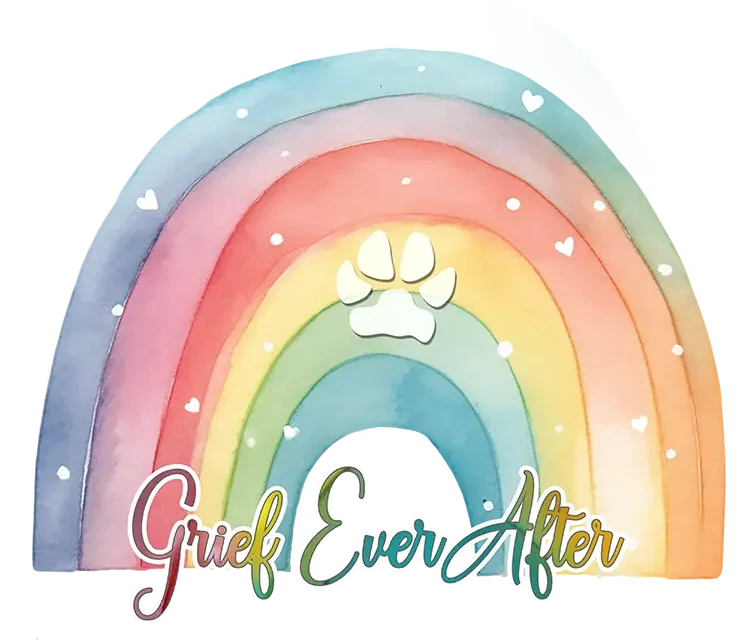The Bully Within: Confronting Guilt in Pet Loss
Guilt and regret are such heavy and pervasive emotions, especially in grief. Double especially in pet loss. I’ve always said that one of the hardest parts about grief is having this human brain. It can really go wild and convince us that whatever it’s conjuring up to make us feel bad, is the unquestionable truth.
Grief has a distinct sense of powerlessness and lack of control. I think we can all agree that if we could have controlled and changed that fact that someone died, we would. But we don’t have that power. Instead, what we can control surfaces. And it’s not always pretty.
Commonly, we can control how bad we feel about ourselves. We convince ourselves that we didn’t do enough or maybe we did too much. We could’ve done better, we missed things. We should be grieving harder or at a different speed and we should never feel anything but unrelenting anguish.
Guilt in pet loss is like an unwanted houseguest in our mind. A squatter that knows all the ways around being evicted. We’re vulnerable in grief and guilt sees that and attacks. Guilt is a bully.
Guilt is such a large part of grief, I’ve ended up writing a series about it. Just one post about how powerful guilt is was not enough. It needs to be talked about, outed, exposed. Hopefully that is what will slowly start to ease the weight of guilt while grieving.
The thing about guilt is that often if we can release ourselves from feeling guilty for one thing, it’s just traded for another. There are so many cracks in the stories we tell ourselves about life and death, that guilt just seeps right in there.
Let’s talk about some of the common things to feel guilty about when someone so important, who has relied on us for everything, is no longer here.
Euthanasia Guilt
Might as well start with the biggie. Nearly 90% of pets who die are euthanized, which means 90% of pet parents have had to make this decision. Fair to assume that we are the largest population of caregivers who have to actively make the decision to say “it’s time” to give a family member rest. Talk about a heavy burden.
The decision to say goodbye is one that can be guided by trusted veterinarians, but ultimately it’s on us. We have to say “we’re ready”, even when that is literally the furthest from the truth. We could never be ready. This can be like rolling out a red carpet for guilt.
To further complicate things, our pets can not speak to us like humans we love would at the end of their life. They can’t say, in words, “I’m ready”, “I’ve had a great life”, “I couldn’t have asked for a better family”. Even though they would, they can’t. And without that one little piece of validation, it can leave another void for guilt to seep into.
Perceived failures guilt
In pet loss grief, feeling like a failure can be a hallmark. Failed to see illness even when there were not outward signs. Failed to know cancer was brewing when we all know how sneaky cancer is. Failed to get them to eat the “right” foods. Failed to do some veterinary care that no one even suggested. Failed to give enough of ourselves. Failed to spend enough time with them. Failed to give them adventures. Failed to decide soon enough.
No matter what life looked like, it seems like we can all rattle off a few things we feel like we failed at. Guilt tends to be about our version of the story. Logic is not a requirement.
Guilt for Being Normal
This is an example of “contaminated guilt” because we are all human and none of us is perfect. We do human stuff. Probably why we like dogs, cats, and critters so much. Not being human is endearing. We raise our voices, stay out too long, get lazy, and don’t want to go for a walk or play.
We might have a night of overindulgence and hit the bed before remembering their dinner or a last potty break. We might have had to cut costs in places at some point in life and maybe that meant different food or less trips to the vet.
The list could go on. Normal life stuff that just happens and we deal with it as it comes, can be a place for guilt to fester in grief.
Relief Guilt
A full night’s sleep. More money each month. Not having crippling anxiety all the time. Being able to go out and not watch the clock. Not being at the vet so much that you see them more than your family. Not needing gates or ramps or throw-rugs all over the house. Not having to shut the door real fast so no one considers sneaking out.
So many places where if we experience a single moment of relief, guilt takes a hold of it and runs. Suddenly it’s trying to convince us that ANY relief may actually mean we’re relieved our loved one is gone.
Not true, obviously. But bullies are like that. They find your weakness and then pounce and don’t let go.
Joy Guilt
After losing our dog, I asked my husband what’s something he is struggling with. Joy guilt. The old brain convinces us that bottomless anguish is proof of loyalty and if there are moments of joy, well, it must mean grief isn’t a big deal to you. That you’re “over it”.
In actuality, joy and the pain of grief are on the same journey. Humans are complex (again, why we love animals so much—they aren’t like us). Two things can be happening at once. You can be deeply grieving and you can also experience joy. Just like joy does not cancel out grief, grief does not cancel out joy. They are not mutually exclusive.
Allowing yourself to organically feel joy is, in part, how to start healing and figure out how to live in a changed world. How to live and grieve simultaneously.
Understandable Guilt
As the title of this section would imply, sometimes we understandably feel guilty. Typically when an accident or something unexpected happens that we could’ve changed or potentially anticipated, that guilt is a force to be reckoned with.
Living in a world where accidents happen, and they sometimes can’t be undone, is really, really hard.
As with all guilt, but especially understandable guilt, working towards reconciling it at some point is a necessity in grief. Guilt can keep grief 100% in your mind and prevent you from grieving from your heart. Instead of evolving, it’s just revolving and not going anywhere.
Self forgiveness can feel impossible with the high standard of being the perfect pet parent 100% of the time. And the truth is, sometimes forgiveness in the way we’re used to, is not possible. Reconciliation of understandable guilt might not always include absolute forgiveness.
I have struggled and learned from this guilt in a very personal way. Willingness to acknowledge and learn from mistakes while also recognizing your worth and capacity for growth are all steps towards this reconciliation.

Identifying your type of guilt in the grief line-up might bring a smidge of clarity to why guilt is there and what purpose it’s trying to serve. As with all bullies, guilt overcompensates to feel powerful and we have to practice patience and self kindness to de-escalate it. All while we’re grieving.
No wonder grief is exhausting.
READ MORE FROM THE GRIEF AND GUILT SERIES






